beyonce youtube |
- Beyoncé, Lady Gaga Among Commencement Speakers Joining Obamas for YouTube’s Graduation Spectacle - PEOPLE
- Black Lives Matter: Beyonce releases new song ‘Black Parade’, creates directory of black owned businesses... - Hindustan Times
- Chloe Bailey of Chloe x Halle Once Played the Younger Version of Beyoncé's Character in This Musical Comedy - Showbiz Cheat Sheet
- Beyoncé has empowering message for LGBTQ grads: 'Your queerness is beautiful' - NBC News
- From the Band to Beyoncé: concert films to fill the live music black hole - The Guardian
- A busy weekend of music festivals — online - The Morning Sun
| Posted: 05 Jun 2020 09:53 AM PDT  this link is to an external site that may or may not meet accessibility guidelines. |
| Posted: 24 Jun 2020 02:40 AM PDT  Beyoncé has been a longtime advocate of Black rights and also a promoter of 'Black excellence', the 38-year-old entrepreneur and singer recently spoke about the Black Lives Matter movement, George Floyd's death, other victims of police brutality as she addressed the Class of 2020 during a virtual ceremony hosted on YouTube. The Single Ladies singer had said, "Thank you for using your collective voice and letting the worlds know that Black lives matter. The killings of George Floyd, Ahmaud Arbery, Breonna Taylor and so many others have left us all broken. It has left the entire country searching for answers." The Lemonade singer has now released a new single Black Parade and a curated, comprehensive directory of Black-owned business along with her stylist, Zerina Akers. Marking Juneteenth (June 19), Queen Bey posted, "Being Black is your activism. Black excellence is a form of protest. Black joy is your right." Juneteenth celebrates the emancipation of slaves by the United States and the end of slavery in Texas, Beyonce's home state, in 1865. The day also known as Freedom Day, Jubilee Day, Liberation Day, and Emancipation Day. Taking to her Instagram, Beyonce wrote, "Happy Juneteenth Weekend! I hope we continue to share joy and celebrate each other, even in the midst of struggle. Please continue to remember our beauty, strength and power. "BLACK PARADE" celebrates you, your voice and your joy and will benefit Black-owned small businesses." Beyonce's website says that all the proceeds would be donated to "BeyGOOD's Black Business Impact Fund, administered by the National Urban League, to support Black-owned small businesses in need". According to Variety the song has been co-produced by Derek Dixie, and is co-written by Beyonce's producer husband Jay-Z, Kaydence, Denisia, Andrews and Brittany Coney for NOVAWAV, among others. Talking of her Houston roots, Beyonce sings, "I'm goin' back to the South ... Back where my roots ain't watered down." In the four-minute-forty-two seconds song, Beyonce sings, "Ooh, melanin, melanin, my drip is skin deep, like Ooh, motherland, motherland, motherland, motherland drip on me Ooh, yeah, I can't forget my history is her-story, yeah Being black, maybe that's the reason why They always mad, yeah, they always mad, yeah Been past 'em, I know that's the reason why They all big mad and they always have been." |
| Posted: 24 Jun 2020 01:56 PM PDT Over the years, we've learned a few things about Chloe x Halle. Not only are they extremely talented singers and the protégés of the one and only Beyoncé, but the sisters are also skilled actresses who've gained further prominence by starring in the hit sitcom Grown-ish. But one thing many people probably didn't know about the singers is that Chloe actually played a younger version of Beyoncé's character in a movie back in 2003.  Beyoncé knew Chloe X Halle before she signed them to her labelIn 2013, Chloe and Halle Bailey uploaded a beautiful rendition of Beyoncé's single, "Pretty Hurts," on their popular YouTube channel. The video quickly went viral, garnering thousands of likes (today, it has over 19 million views), and soon, it caught the attention of the Queen B herself, Beyoncé. RELATED: Chloe x Halle: 5 Fast Facts After watching the talented sisters perform her hit song, Bey posted their video on her Facebook page with the caption, "So amazingly talented!!" From there, the relationship between Beyoncé and the Bailey sisters blossomed, and in 2015, the songstress signed the singers to her label, Parkwood Entertainment. While it seemed like Chloe x Halle were two talented teens who Beyoncé just so happened to come across, it turns out that three singers actually met for the first time 10 years prior. Back in 2003, Chloe Bailey played a young version of Beyoncé's character, Lilly, in the musical comedy The Fighting Temptations. Chloe even spoke about her experience playing the younger version of Bey while appearing on The Breakfast Club in 2018. "When we first met [Beyoncé], I was 4, and [me and Halle] acted too. It was in The Fighting Temptations; I played the younger version of [Beyoncé]," she said. "That's when our paths first crossed. So, it's crazy how the universe works and sends you those little signs." Chloe X Halle became Beyoncé's protégésAs fate would have it, Bailey and Beyoncé crossed paths again years later, and both of their lives ended up changing in a special way. After Chloe x Halle signed a $1 million, five-year contract with Parkwood Entertainment, they began working on their debut EP, Sugar Symphony, which was released April 29, 2016. Later that same year, Beyoncé featured the sister duo in her Lemonade visual album. She even had them open up for her during the European leg of her Formation World Tour. As their fame's continued to grow, Beyoncé has remained by the sisters' side, serving as their mentor and dishing out advice whenever she can. RELATED: Beyoncé's Protégés, Chloe x Halle, Deliver Beautiful Performance During the Super Bowl "Being in the midst of having such a beautiful mentor like her, we were allowed to explore with our creativity, and we're so thankful to her for providing her platform and always reminding us that you don't have to dumb down your art for the world — you can keep creating new, innovative things and let the world catch up to you," Halle told People in 2018. Today, Beyoncé still mentors Chloe x Halle and even gave the sisters' new album, Ungodly Hour, her stamp of approval. "When we sent her the album, she said that she loved it and didn't have any notes," Chloe recalled in an interview with The Associated Press. "(We) were like, 'Oh wow!' She must really like it because she always sends notes, which we appreciate and add in most of the time. I'm really proud of this album and if she loves it, I hope everyone else loves it, too." But even if their album didn't receive positive reviews (don't worry, it did!), Chloe x Halle will always have the support of Beyoncé, who also happens to be one of the most successful female artists of all time. |
| Beyoncé has empowering message for LGBTQ grads: 'Your queerness is beautiful' - NBC News Posted: 10 Jun 2020 10:52 AM PDT  In her speech to the Class of 2020, Beyoncé encouraged graduates to be unabashedly themselves. "If you're part of a group that's called 'other' — a group that does not get the chance to be center stage — build your own stage, and make them see you," she said. "Your queerness is beautiful, your blackness is beautiful, your compassion, your understanding, your fight for people who may be different from you is beautiful." The pop star's LGBTQ fans took to social media to respond. "Beyoncé's speech made me shed hot tears!" one person tweeted. "I am terrified of starting life after school but I will never forget that I am important, I am strong, I am powerful, I am queer and I am capable of bringing the change I wish to see in this world." Another Twitter user said, "I feel like I've been waiting for this my whole life." Beyoncé's 10-minute speech was part of the YouTube livestream "Dear Class of 2020," a virtual commencement ceremony headlined by Barack and Michelle Obama. The full ceremony, which has been viewed over 8 million times since it went up on YouTube on Sunday, also featured Lady Gaga, Taylor Swift, Stephen Colbert and Malala Yousafzai and performances by BTS, Chloe x Halle and Mariah Carey. Beyoncé congratulated the graduates on their perseverance through the coronavirus pandemic and paid homage to the #BlackLivesMatter movement. "You have arrived," she said. "Here in the middle of a global crisis, a racial pandemic, and worldwide expression of outrage at the senseless killing of yet another unarmed black human being — and you still made it." She addressed the killings of George Floyd, Breonna Taylor and Ahmaud Arbery, whose names have rung through the streets as part of the recent mass protests against racism and police brutality. She also spoke about her own experiences being excluded or put down as a black woman trying to enter a white and male-dominated entertainment industry. "Not enough black women had a seat at the table, so I had to go chop down that wood and build my own table," she said. In much of her speech, she spoke directly to black graduates, encouraging them to push on through difficult times and make "power moves." "To the young kings, lean into your vulnerability and redefine masculinity," she said. "Lead with heart." "I hope you go into the world and show them that you will never stop being yourself," Beyoncé said. "That it's your time now. Make them see you." |
| From the Band to Beyoncé: concert films to fill the live music black hole - The Guardian Posted: 22 Jun 2020 01:00 AM PDT You don't know what you've got till it's gone. Since live music in the UK entered suspended animation on 16 March, even the most mundane aspects of gig-going have acquired an exotic tang. While revisiting the concert movies below, I found myself gazing longingly at arena corridors, stadium loading bays and festival burger vans, let alone musicians and crowds. I get giddy at the thought of watching a mediocre band play an early afternoon slot on the third stage of a minor festival. The noise, the spectacle, the people, the ritual of it. Spirit me to a performance by someone I genuinely love and I might faint. This is live music's lost summer: a packed calendar wiped clean in one swoop. The festival season is a black hole. Shows that were optimistically shunted back to autumn have now been kicked into 2021. The concert industry is worth more than $30bn a year, so its temporary disappearance is economically devastating for musicians and worse still for road crews, stage designers, caterers, venue staff and so on. For punters the loss is more intangible: an absence of joyful new memories; the phantom sense of what might have been. Every week my Google calendar tells me about another great night out that I should be having. Next weekend was meant to be Glastonbury. So much for that. In this unprecedented drought, concert movies become precious escapism. Many are aimed at the fanbase and add nothing to the form, but the ones I've chosen tell stories – about historic events, or Herculean achievements, or bittersweet swansongs, or the white heat of fandom – that will hold your attention even if you can take or leave the music. They reveal what it takes to put on a memorable show and how it can become more than just a show. These documentaries have never been as transporting as they are now. For the first time ever, they are the only access to live music that we have. Monterey PopDirected by DA Pennebaker, 1968 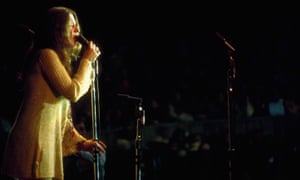 I'd say we wouldn't be talking about Monterey today without the movie," said festival promoter Lou Adler on its 50th anniversary. In 1967, Adler and John Phillips of the Mamas and the Papas staged the first rock festival, with the goal of giving rock'n'roll the same artistic status as jazz and folk, and hired Pennebaker, hot from his Dylan documentary Don't Look Back, to film it. Pennebaker allowed his crew to film whatever they liked, however they liked, and collaged their different perspectives, during a marathon, sleep-deprived editing session, into a kaleidoscopic narrative that became the perfect advertisement for the concept of the rock festival and an inspiration to the organisers of Woodstock. It's especially moving because its standout performers were all gone within four years. Janis Joplin holding Mama Cass spellbound; Otis Redding vibrating with charisma; Jimi Hendrix humping his amp with such gusto that ABC television dropped the movie like a hot rock – all memorialised in their glorious prime. Watch it on: Criterion DVD (UK), HBO Max (US) Gimme ShelterAlbert and David Maysles and Charlotte Zwerin, 1970 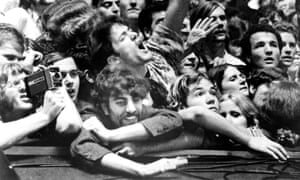 When the Maysles brothers began covering the Rolling Stones' 1969 US tour, neither they nor the band had any inkling that the final show, at California's Altamont Speedway, would become the anti-Woodstock, rivalling the Manson murders as the symbolic terminus of the 1960s. The irony of Mick Jagger telling a press conference that Altamont would "set an example to the rest of America as to how one can behave in large gatherings" is unbearable. It was Zwerin who suggested filming the Stones in the edit suite so that they became viewers as well as participants. We see Jagger strutting like a camp superhero at Madison Square Garden; Jagger pleading "Don't let's fuck it up" as the Hells Angels go rogue during a ragged Sympathy for the Devil; then Jagger, like a weary detective, numbly asking one of the Maysles to rewind the part of the tape where a young black man, Meredith Hunter, loses his life and a rock concert becomes a crime scene. In later concert movies such as Hal Ashby's Let's Spend the Night Together and Martin Scorsese's Shine a Light, the Stones appear untouchable. Here they are hubristic young men who have unleashed dark forces that they cannot comprehend. This is one concert that you won't long to have attended. Watch it on: YouTube WattstaxMel Stuart, 1973 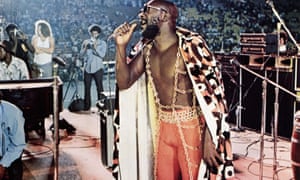 Every summer following the 1965 Watts uprising in Los Angeles, residents held a festival to remember the 34 dead and celebrate the rebuilding of the community, but the seventh year was on another level thanks to Memphis record label Stax. Timed to coincide with Isaac Hayes's 30th birthday, Wattstax was great promotion for Stax but it was also genuinely philanthropic, with the label underwriting most of the expenses and the $1 ticket price. They even arranged with the LAPD to have only unarmed black officers on duty at the LA Coliseum, and asked Jesse Jackson to bookend the six-hour event with rousing speeches, since sampled by Public Enemy and Primal Scream. The movie's white director, Mel Stuart, underlines the event's cultural importance, jugglingterrific performances by the likes of Rufus Thomas (hilarious) and the Bar-Kays (eye-popping), the manic comedic riffing of Richard Pryor and barbershop conversations about aspects of black life, from racism to relationships. Headliner Hayes, the self-proclaimed black Moses, looks like a king but Stuart keeps cutting away to scenes of street life, as if to say that the movie's real star is the city of Watts. The film closes with Jackson leading 112,000 people in a simple declaration of human dignity: "I am somebody!" Watch it on: YouTube The Last WaltzMartin Scorsese, 1978 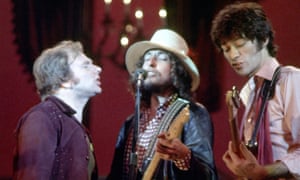 There's a decadent air to The Last Waltz. The Band invited so many stars to join their seven-hour farewell concert at San Francisco's Winterland in November 1976 that Scorsese's film ended up depicting a generation of rock royalty – Bob, Joni, Neil, Eric, Van – on the verge of being dethroned by punk. Inevitably, it fizzes with cocaine. A conspicuous white crumb was removed from Neil Young's nose in post-production but his gurning during the climactic group singalong speaks for itself, while Van Morrison's crazed, high-kicking energy cannot be attributed to adrenaline alone. The interviews, shot several months later, strike a dissonant note, too. None of the Band seem keen to talk except the mesmerising, insufferable Robbie Robertson, who sometimes seems like an actor playing the part of Robbie Robertson. It was the guitarist, who later became Scorsese's music supervisor, who unilaterally pulled the plug on the group's touring career ("it's a goddam impossible way of life") and used the movie as a bridge to Hollywood. Yet for all the weird vibes, The Last Waltz looks and sounds extraordinary. Scorsese deployed rigorous storyboarding, 35mm film and seven cameramen, including the cinematographers behind Easy Rider, Deliverance and his own Taxi Driver, to give a fraught and patchy concert the golden glow of myth. Watch it on: Amazon on demand Stop Making SenseJonathan Demme, 1984 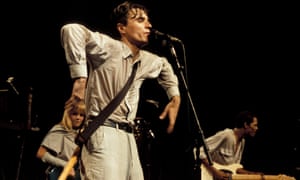 The best concert movie ever made? Not according to Demme. "This isn't a concert film," he said at the time. "It's a performance film." The director wanted the film itself to be an "experience" rather than the record of "an event that happened once". Hence no special effects, no fancy lighting, muted applause and minimal audience shots. This radical approach chimed with frontman David Byrne's ambition to wrap up Talking Heads's live career with a meticulously choreographed, ever-changing spectacle, although he neglected to inform his bandmates that this would be the end. Demme shot three shows at Hollywood's Pantages theatre and, with editor Lisa Day, finessed the footage into one seamless performance. In 2020, the narrative arc from solitude to community becomes a poignant metaphor for the return of live music: a socially distanced Byrne begins by singing Psycho Killer alone before other members of the nine-strong touring band gradually turn the stage into a carnival. Behind the scenes, Byrne's emotionally chilly perfectionism drove his bandmates to distraction but on stage, and on screen, this is ecstasy. Watch it on: BFI Player and on demand Depeche Mode 101DA Pennebaker, Chris Hegedus and David Dawkins, 1989 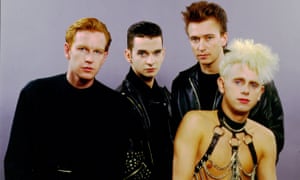 Twenty years after Monterey Pop, Pennebaker made his masterpiece about musicians and the people who love them. Depeche Mode 101 is effectively two parallel road movies. One follows band and crew en route to their first stadium show, at the Rose Bowl in Pasadena, and documents the peculiar mixture of strain, boredom and elation that characterises the final stretch of a long tour. Singer Dave Gahan, on the cusp of stardom, wonders if he was happier stacking shelves in Essex. Simultaneously, the coast-to-coast bus journey of eight likable, telegenic fans becomes a love letter to fandom. When they all reach the Rose Bowl, we appreciate the concert from both perspectives, converging in the moment when Gahan crouches low, holds out his microphone, and invites the crowd to sing the final refrain of Everything Counts over and over again. This movie established Depeche Mode as a credible global stadium band, while the relationships between the "bus kids" inspired MTV to launch pioneering reality-TV show The Real World. Pennebaker, meanwhile, considered the film a career highlight. "At the end, everybody waving back at David was such an extraordinary thing to film," he said shortly before his death last year. "I've never got over it." Watch it on: YouTube The Chemical Brothers – Don't ThinkAdam Smith, 2012 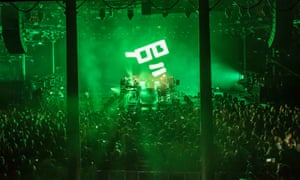 However much they invest in innovative stage design, most artists still want to be the centre of attention, but Tom Rowlands and Ed Simons became one of the world's best live acts by deciding that they were quite happy to be eclipsed by Adam Smith's visuals. His film of their headlining set at 2011's Fuji rock festival is a rhythmically edited 85-minute trip through mind-frazzling psychedelic imagery (clowns, robots, dancers made of light), punctuated by the faces of crowd members in various states of abandon. Towards the end, one wide-eyed fan wanders away from the melee, evoking the festival experience so viscerally that you can practically smell the distinctive aroma of wet grass, hot food and cigarette smoke. Small wonder than when it was released in cinemas in Dolby 7.1 surround sound, it had audiences dancing in the aisles. Watch it on: EMI DVD Shut Up and Play the HitsDylan Southern and Will Lovelace, 2012 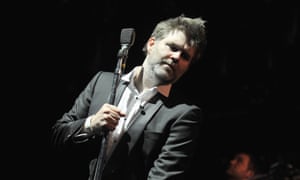 "When you start a band do you imagine how it will end?" journalist Chuck Klosterman asks LCD Soundsystem's James Murphy in this documentary about Murphy's premature retirement from music. Cutting between the band's farewell performance at Madison Square Garden, the Klosterman interview and the melancholy morning after, Southern and Lovelace's film is coloured by Murphy's melancholy ambivalence about his decision to go out on a high at the age of 41. He admits that stopping might actually be his "biggest failure". The fly-on-the-wall scenes evoke the uncertainties of middle age and the ceaseless reinventions of New York City while the concert footage is thrillingly kinetic. Seeing the ecstatic faces of the crowd and band members, you wonder why anyone would want to give this up. The last shot captures one weeping fan, frozen in place as the lights go up and the venue empties, unable to say goodbye. Murphy's U-turn in 2016 showed that, in the end, he couldn't either. Watch it on: Apple on demand Amazing GraceAlan Elliott and Sydney Pollack, 2018 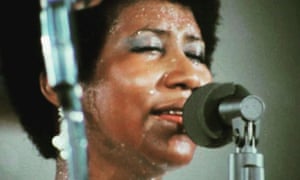 By far the most intimate performance on this list took place over two days in January 1972, at the New Temple Missionary Baptist Church in Watts, Los Angeles. Five years into her reign as the queen of soul, Aretha Franklin wanted to prove that she had not forgotten her gospel roots and put together a hybrid show that functioned as a musical memoir: an R&B band playing with a community choir; hymns from her childhood mixed with recent hits by Carole King and Marvin Gaye; her preacher father in the front row and two Rolling Stones at the back. Pollack caught every detail, from the beads of sweat on Franklin's brow to the Reverend James Cleveland's tears of emotion. Unfortunately, a technical blunder meant that the music couldn't be synchronised with the images and the film gathered dust even as the audio recording went double platinum. Even when Alan Elliott bought the rights in 2007 and used digital technology to reconcile sound and vision, Franklin blocked its release. Only after her death in 2018 did her estate give the film its blessing and enable Aretha, finally, to take viewers to church. Watch it on: Amazon Prime Homecoming: A Film by BeyoncéBeyoncé, 2019 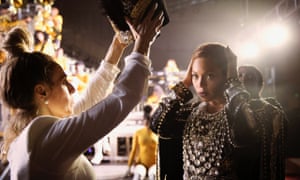 "I wanted us to be proud of not only the show but the process," says Beyoncé in this blockbuster account of her two nights headlining the Coachella festival in 2018. As director, writer, producer and star, she is in full command of Homecoming's narrative. The concert footage and the supposedly candid rehearsal clips are designed to tell the same two stories about excellence and endurance. One is Beyoncé's arduous return to the stage after giving birth to twins. "It takes a village," she says as she marshals hundreds of people across three sound stages during four months of rehearsals. While most big-budget concerts depend on screens and structures, the stage design here consists of people: more than 200 dancers and musicians, including Jay-Z, who appears endearingly awestruck by his wife's achievement. The second narrative, which elevates Homecoming above self-hagiography, is the pride and struggle of black women: lines from Toni Morrison, Audre Lorde and Nina Simone place the shows in the tradition of unapologetically black art. "The charge on you," says the late Maya Angelou, "is to make this country more than it is today." Watch it on: Netflix |
| A busy weekend of music festivals — online - The Morning Sun Posted: 23 Jun 2020 09:36 AM PDT Summer is usually prime time for music festivals, but the COVID-19 pandemic has forced most to cancel or postpone — or move online. This weekend is particularly busy, and here's five from the docket to enjoy from quarantine... • The Essence Music Festival is moving from its New Orleans home to virtual space for two weekends of entertainment, running through Sunday, June 28, and also July 2-5. Dubbed the 2020 Essence Festival of Culture: Unstoppable Virtual, it will be hosted by Loni love and feature appearances by Bruno Mars, John Legend, Patti LaBelle, D-Nice, Nas, Kirk Frankin, the Clark Sisters, India.Arie and many more. There will also be special gospel sessions both Sunday mornings, including sermons. All the action takes place at essence.com.  Britain's Glastonbury festival will be celebrated online this year on its planned dates, June 25-29, on air and via its iPlayer online with past performances by the late David Bowie and others. (Courtesy BBC) • Britain's famed Glastonbury festival — celebrating its 50th anniversary this year — was another coronavirus casualty, but the BBC is keeping it alive on its planned dates, June 25-29, on air and via its iPlayer online. The network will host a variety of past performances, including by David Bowie, Adele, Beyonce, Oasis, Coldplay, Jay-Z and others. Full details at glastonburyfestivals.co.uk.  Britain's Glastonbury festival will be celebrated online this year on its planned dates, June 25-29, on air and via its iPlayer online with past performances including by Beyoncé and others. (Courtesy BBC) • Belgium's Tomorrowland festival wraps up with one more day of dance music on Friday, June 26. The beats starting at 9 a.m. via tomorrowland.com. Single-day tickets are $13. • The canceled Governor's Ball festival streams "From the Vault" sets by Post Malone and Major Lazer at 8 and 9 p.m. Friday, June 26, via YouTube.  The annual Roots Picnic will be held online Saturday, June 27, in conjunction with former First Lady Michelle Obama. (Provided by Roots Picnic) • The Roots and former First Lady Michelle Obama join forces for the Roots Picnic 2020, moving from the group's native Philadelphia to its YouTube channel at 8 p.m. Saturday, June 27. Other performers include H.E.R., Roddy Rich, SZA, Lil Baby, Kirk Franklin, Polo G and more, while Obama will be joined by Kerry Washington, Janelle Monae, Tom Hanks and more in encouraging viewers to register to vote. |
| You are subscribed to email updates from "beyonce youtube" - Google News. To stop receiving these emails, you may unsubscribe now. | Email delivery powered by Google |
| Google, 1600 Amphitheatre Parkway, Mountain View, CA 94043, United States | |




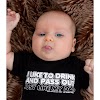


0 Yorumlar